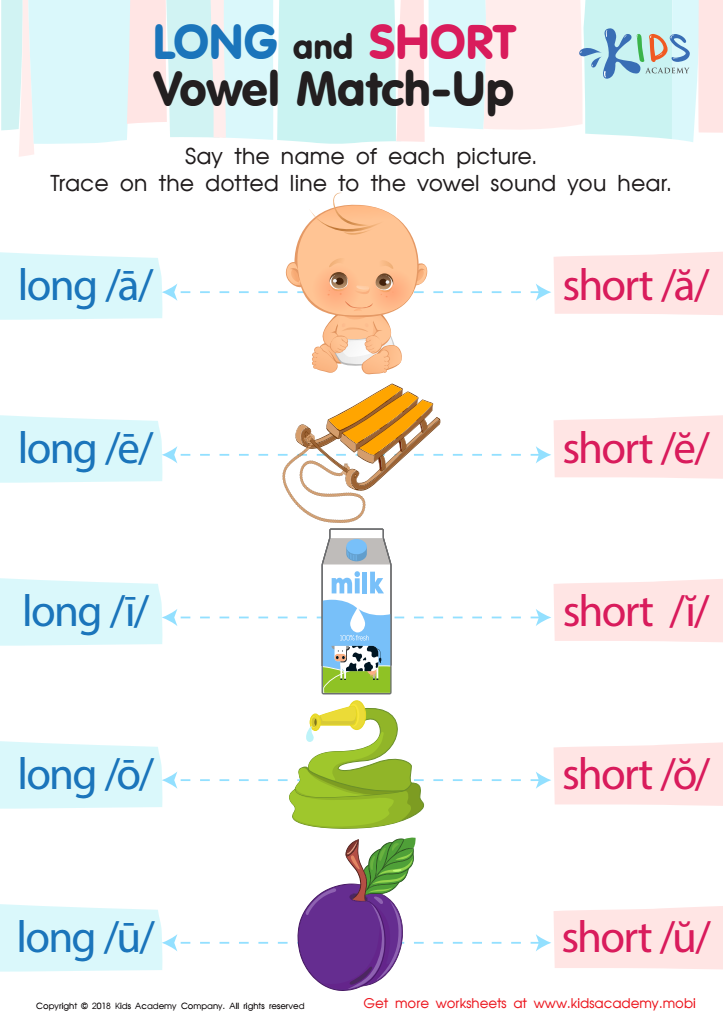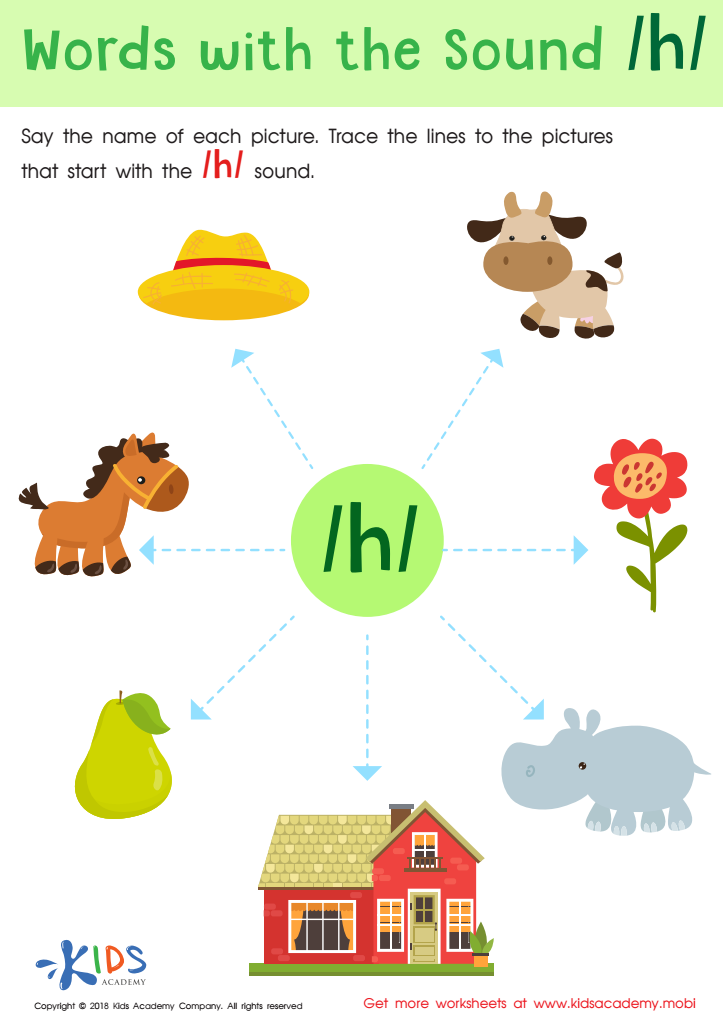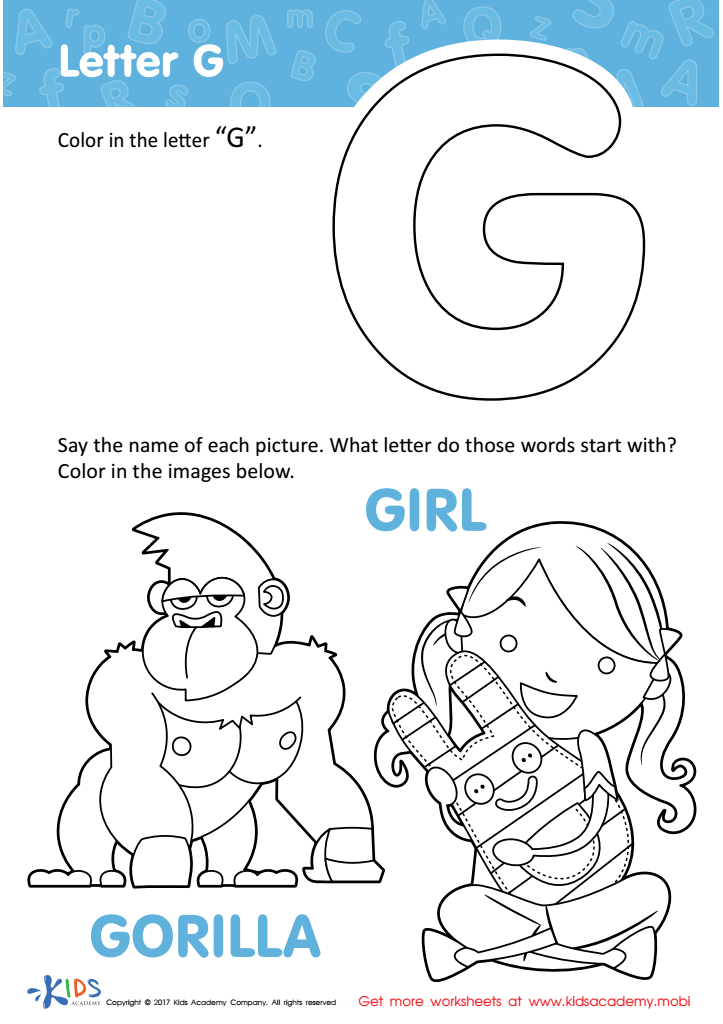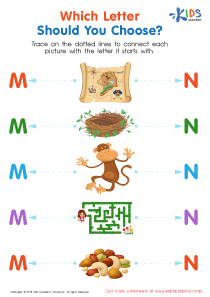Sound Association Normal Kindergarten Alphabet Worksheets
4 filtered results
-
From - To
Enhance your child's phonemic awareness with our "Sound Association Normal Kindergarten Alphabet Worksheets." Designed for young learners, these engaging worksheets help children connect sounds with corresponding letters through fun activities and illustrations. Each sheet encourages interaction, making learning enjoyable as kids practice letter recognition and auditory skills. Our comprehensive collection expands vocabulary while reinforcing essential literacy concepts, setting a strong foundation for reading success. Ideal for parents and educators alike, these worksheets are easy to print and incorporate into any lesson plan. Start your child's learning journey today with our sound association tools, ensuring they build confidence and communication skills!


Long and Short Vowel Match up Reading Worksheet


Words with sound h Reading Worksheet


Letter G Coloring Sheet


Words with sound f Reading Worksheet
Parents and teachers should care about the Sound Association Normal Kindergarten Alphabet because it plays a crucial role in early literacy development. The concept focuses on helping children make connections between letters and their corresponding sounds, a fundamental skill that lays the groundwork for reading and writing. By learning the alphabet through sound associations, children can better decode words, which boosts their reading fluency and comprehension skills.
Furthermore, this approach enhances children's phonemic awareness – the ability to hear, identify, and manipulate sounds in spoken language. This skill is pivotal for successful reading and writing. When children can associate sounds with letters, they gain the confidence to tackle new words independently, fostering a love for reading.
Moreover, the Sound Association Normal Kindergarten Alphabet is accessible and engaging, promoting a fun learning environment. Interactive activities, songs, and games can be incorporated to maintain children's interest and motivation.
In summary, an emphasis on sound associations in the early years equips children with essential literacy skills, supports their academic growth, and cultivates a positive attitude toward learning. Both parents and teachers play vital roles in this process, ensuring a strong foundation for future literacy success.
 Assign to My Students
Assign to My Students














